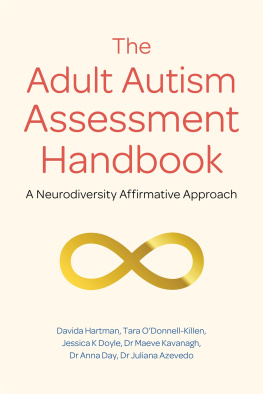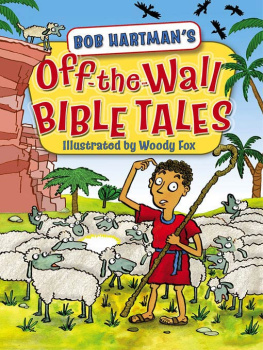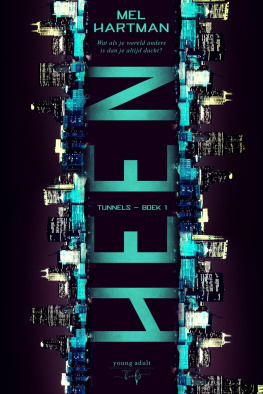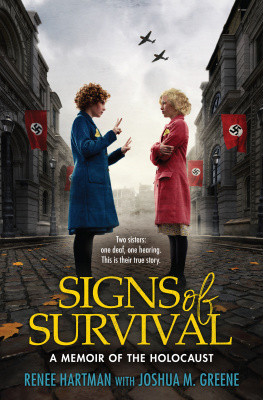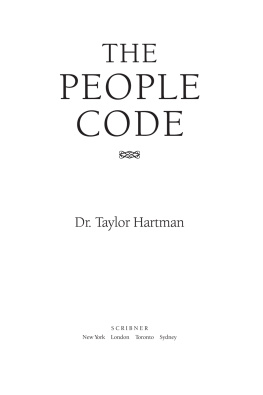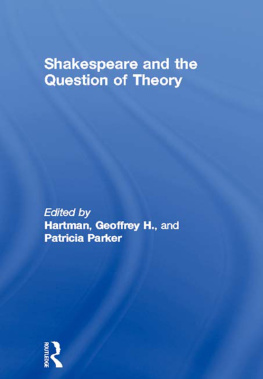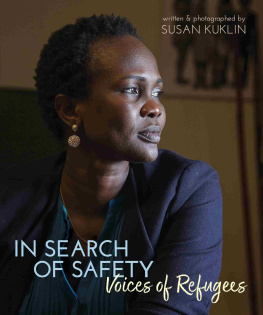Susan Hartman - City of Refugees
Here you can read online Susan Hartman - City of Refugees full text of the book (entire story) in english for free. Download pdf and epub, get meaning, cover and reviews about this ebook. year: 2022, publisher: Beacon Press, genre: Art. Description of the work, (preface) as well as reviews are available. Best literature library LitArk.com created for fans of good reading and offers a wide selection of genres:
Romance novel
Science fiction
Adventure
Detective
Science
History
Home and family
Prose
Art
Politics
Computer
Non-fiction
Religion
Business
Children
Humor
Choose a favorite category and find really read worthwhile books. Enjoy immersion in the world of imagination, feel the emotions of the characters or learn something new for yourself, make an fascinating discovery.
- Book:City of Refugees
- Author:
- Publisher:Beacon Press
- Genre:
- Year:2022
- Rating:4 / 5
- Favourites:Add to favourites
- Your mark:
- 80
- 1
- 2
- 3
- 4
- 5
City of Refugees: summary, description and annotation
We offer to read an annotation, description, summary or preface (depends on what the author of the book "City of Refugees" wrote himself). If you haven't found the necessary information about the book — write in the comments, we will try to find it.
City of Refugees — read online for free the complete book (whole text) full work
Below is the text of the book, divided by pages. System saving the place of the last page read, allows you to conveniently read the book "City of Refugees" online for free, without having to search again every time where you left off. Put a bookmark, and you can go to the page where you finished reading at any time.
Font size:
Interval:
Bookmark:


for Ben
In 2013, I got a call from a stranger. It was a Hamilton College economics professor, Erol Balkan, who knew I often wrote about immigrant communities. He said, Did you know Utica has become a city of refugees?
Utica is an old manufacturing town on the Mohawk River, about 100 miles northwest of Albany, New York. It might seem an unexpected spot for refugees fleeing persecution and war to put down new roots.
Four days later, I was in Professor Balkans car.
He drove me through streets once filled with abandoned houses. Piles of sneakers now sat on the porches of homes where Somali Bantu families live. We ate at a tiny restaurant owned by a Burmese brother and sister. We passed a large Bosnian mosque, carved out of an abandoned Methodist church.
In the seventies, when I was a student at Kirkland CollegeHamiltons coordinate schoolI was intrigued by Utica, 15 minutes away. It seemed under a spell, like Sleeping Beauty. Its downtownonly 12 blocks longwas filled with empty storefronts and dark brick Victorian mansions that had seen better days. Social service organizations and food pantries had moved into many buildings.
Fascinated by how Utica had changed, I kept returning, and in 2014 I wrote a story about the citys revitalization for the New York Times.
But instead of moving on, I kept going back.
My first week reporting, I met three remarkable newcomers. Sadia, a bright, rebellious 15-year-old, answered the door. Id come to see her mother, who had 11 children and worked at Chobani, the yogurt factory. Will you save me? Sadia said, laughing, as she pulled me inside. Shed recently been suspended from high school for getting into a fight with another Somali Bantu girl.
And I was drawn to Ali, an Iraqi interpreter with large reserves of feeling. He worked in Uticas courts and hospitals but seemed shadowed by war. Mersihaa Bosnian refugee who ran a bakery out of her homewas a kind of visionary. Her head was buzzing with entrepreneurial ideas.
I didnt expect to follow my subjects for eight years. But their lives were changing so rapidlyand I kept wanting to see what was next.
Utica was not the only struggling city sparked to life by newcomers: Dayton, Chicago, Cleveland, Columbus, and Detroit, among others, were developing strategies to attract immigrants. They needed an economic boostbut also hoped that by becoming more culturally diverse, they would draw young professionals.
Sadia, Ali, and Mersiha were finding their way in a city that needed them. This was true for thousands of recent immigrants and refugees across the country.
In 2015, the world shifted.
More than 65 million people were on the run. It was the largest wave of displaced people since World War II.
Climate change helped trigger this migration: Extreme weather over the years had eroded peoples ability to sustain themselves on small plots of land. People were fleeing ISIS in Iraq, and conflicts in Syria, Afghanistan, and South Sudan. The great hope was to get to the United States, Germany, or Italy. All through 2015, tragic accidents were reported: Over 3,770 people died trying to cross the Mediterranean.
An age-old nationalism started rising in Europe, and borders began to close. Donald J. Trump, running for president, held enormous anti-immigration rallies and called for building a wall.
In Utica that same year, more than 10,000 refugees were busy working and raising children. Sadia, a young Somali Bantu girl, was starting to break her clans rules.
L EAVES COVERED the yard of a formerly grand house on Rutger Street in Utica, New York. Inside, Sadia Amburewearing a fleece jacket and a long zebra-striped skirtwalked around her living room, holding her newborn sister, Rahama.
The baby had a thick crop of dark hair and wore a striped onesie. Sadia had hardly put the baby down all week.
You know whos my best friend in the house? Sadia asked her 19-year-old sister, Mana. The baby! She wont tell anyone my secrets.
Mana, rail thin, with dark circles under her eyes, said, Rahama brings charm to our family.
She loves me way better, Sadia said. But you dont want kids.
I dont.
It will be sad if you dont have any, said Mana, the eldest of their mothers 11 children. I want a lot. Im used to them.
Ill have one kid, Sadia, 15, said. A son. There were only two boys in their family.
A total of 19 family membersincluding her grandparents, aunts, and uncleslived in the house her grandmother, Halima, bought for $55,000 in 2011.
Halima, then 49, painted the walls sky blue, lavender, and deep purple. She ordered red brocade couches from a Saudi Arabian catalog, and hung long drapes, which are always kept closed.
The elegant, but run-down housewith 13 bedrooms and 2 large parlorshas been owned by a succession of families since the 1920s: native Uticans, Italian immigrants, then Bosnian immigrants, reflecting the changing makeup of East Utica. It was used as a drug rehabilitation center in the 1990s.
Boys are easier to handle, Sadia said. Theyll sit down and watch anything on TV. Girls are harderwe fight.
Her uncle, Yusufa small, handsome mancrossed the room, heading out to the Turning Stone Resort Casino, where he worked as a cook.
You never in your life cook for us! Sadia called out.
If you had something interesting in the house, Id cook it, he said. Your grandmother is very conservativeshe only likes African food. I cook Italian and a little French.
It hit Sadia that she was hungry: I love steak with mushrooms and onions, she said. But what she really craved was a Subway sandwich. They were forbidden by her motherand had to be hidden in the refrigerator. It drove her crazy that she had to ask her mothers permission for everythingeven to go to the store.
Can you get me Subway? Sadia asked Mana.
Today is not the day.
The kids get pizza when theyre good.
Not today, Mana said. You hear them? she asked, looking up at the ceiling. There was the thudding sound of children running. I told them to be quiet.
Sadia lay Rahama on the deep-blue rug and drew her tiny sneakered feet into the air. The name Rahama translates as mercy or compassion from Allah. But to Sadia, it means unexpected gift from God.
Sadia buried her face in the babys belly.
Her anxiety from the past tumultuous months drained away. She felt hopeful.
It was late October 2013; she wanted to get things back on track. Stop fighting with other girls at school. Concentrate on her classes. And most difficult of allget along with her formidable mother, who was raising her kids by herself.
Sadia was filled with desires: I want to be a writer, she said. But its hard for me, a foreigner. Her familymembers of the Somali Bantu tribearrived in the United States from a Kenyan refugee camp in 2004. Still in ESL classesthough at the top levelshe worried she did not speak or write as well as native-born students.
But school bored herand she did not want to put in the effort regular classes would take.
She was obsessed with the television show Game of Thrones. That writer has the wildest imagination, she said. How could somebody be so good? Someday, she hoped to create her own TV show. I want somebody to remember me.
She had other desires: I want to be a model, but my family wont let me, she said. I want to go away to school, but my family wont let me.
Font size:
Interval:
Bookmark:
Similar books «City of Refugees»
Look at similar books to City of Refugees. We have selected literature similar in name and meaning in the hope of providing readers with more options to find new, interesting, not yet read works.
Discussion, reviews of the book City of Refugees and just readers' own opinions. Leave your comments, write what you think about the work, its meaning or the main characters. Specify what exactly you liked and what you didn't like, and why you think so.




